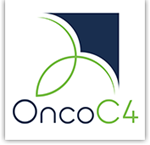OncoC4, Inc., a clinical stage biopharma company focusing on immuno-oncology of cancer, reports a summary of preliminary clinical data from the ongoing Phase Ia clinical trial (PRESERVE-001, NCT04140526) evaluating the safety, tolerability and clinical activity of ONC-392 in cancer patients
Data Suggest that ONC-392 Monotherapy has Promising Anti-tumor Activity in Stage IV Cancer Patients Who Have Failed Multiple Lines of Prior Therapy
Company Plans to advance into Phase II/IIIstudies
ROCKVILLE, Md., Nov. 09, 2021 (GLOBE NEWSWIRE) -- OncoC4, Inc., a clinical stage biopharma company focusing on immuno-oncology of cancer, reports a summary of preliminary clinical data from the ongoing Phase Ia clinical trial (PRESERVE-001, NCT04140526) evaluating the safety, tolerability and clinical activity of ONC-392 in cancer patients. ONC-392 is the only clinically tested nextgen anti-CTLA-4 monoclonal antibody that through a unique mechanism recycles, instead of destroys, the CTLA-4 molecules thereby reducing immunotherapy-related toxicity induced by the CTLA-4 depletion while enhancing therapeutic activities.
Using a rapid intra-patient dose escalation design, the Recommended Phase II Dose for monotherapy (RP2D-M) was determined to be 10 mg/kg, once every three weeks. At this highest dose level tested in the trial, the dose limiting toxicity was not observed and the maximum tolerable dose was not reached, following NCI CTCAE v5.0 toxicity guideline. Thus, ONC-392 as monotherapy was shown to be safe and well-tolerated, meeting the primary endpoint of the trial.
Clinical activity was further determined based on CT scan data evaluated using the RECIST1.1 guideline. All 10 patients enrolled in the monotherapy dose escalation portion of the trial were evaluable, and beneficial clinical activity was evident in 6 out of 10 patients. Most notably, in the 10 mg/kg dose cohort of six total patients, one patient with non-small cell lung cancer (NSCLC) and one patient with ovarian cancer had complete responses (CR). In the 3 mg/kg dose cohort of four total patients, two of them, including one patient with NSCLC and another patient with ovarian cancer, had stable disease (SD) for more than seven months at the time of this report.
Moreover, among these 10 subjects there are 3 stage IV non-small cell lung cancer patients who had previously acquired resistance to PD(L)1 therapy, with acquired resistance, defined as disease progression after 6 months on the PD(L)1-targeted treatment. All of these patients showed evidence of clinical benefit: one patient with CR, one patient with SD demonstrating significant reduction of tumor burden, and the third patient with more than seven months of SD. These data signify that ONC-392 monotherapy has promising anti-tumor activity in Stage IV cancer patients who had previously failed multiple lines of therapy and who had previously acquired resistance to PD(L)1 therapy.
In addition, subgroup analysis showed strong clinical activity and/or immunological anti-tumor activity in metastatic ovarian cancer who failed multi-lines of systemic therapy, an indication of meeting large unmet medical needs. Specifically, three out of four patients had preliminary evidence of clinical benefit, including one with CR pending confirmation, one with SD of more than seven months, and one with an ongoing SD of more than four months with induced intratumor immune response.
“Ovarian cancer is largely refractory to other checkpoint inhibitors and stage IV ovarian cancer patients who failed platinum-based systemic therapy have very poor prognosis. These data demonstrate the significant potential of ONC-392 to be a safe and effective monotherapy treatment option for this difficult to treat disease,” said Dr. Pan Zheng, MD, PhD, Chief Medical Officer of OncoC4.
“Additionally, treating PD(L)1-refractory cancer is one of the most substantial challenges in cancer immunotherapy. We are very encouraged with these initial data and believe ONC-392 as monotherapy warrants further clinical evaluation,” added Dr. Zheng.
Grade 3 immunotherapy-related adverse events (irAE) were observed only after three or four cycles of ONC-392 at the highest treatment dose (10 mg/kg) and only occurred in patients who had tangible evidence of clinical benefit. Furthermore, the irAE were responsive to standard therapies.
“CTLA-4-targeting immunotherapy has been limited by its toxicity. These data are promising and suggest that our unique treatment approach has the potential to fundamentally change the risk/benefit ratio of CTLA-4 targeting therapy with broad implications for multiple tumor types,” said Yang Liu, PhD, Chief Executive Officer and Chief Scientific Officer.
Now that the monotherapy dose escalation of the portion of the trial has completed enrollment, monotherapy expansion cohorts are open to test efficacy in different indications and a Phase II/III trial is being planned to confirm ONC-392 monotherapy. Furthermore, combination therapy is underway to assess the Recommended Phase 2 Dose of ONC-392 in combo therapy with PD(L)1 therapy and expansion cohorts will follow.
Four abstracts on ONC-392 will be presented at the upcoming Society for Immunotherapy of Cancer’s (SITC) 36th Annual Meeting. Part of the clinical data will be presented at the late-breaking session (Abstract No. 949) on Nov. 12, 2021. Three other abstracts describing the mechanism of action (Abstract No. 231), pharmacokinetics (Abstract No. 471) and clinical trial designs (Abstract No. 533) will also be presented on the same day.
About the PRESERVE-001 Trial (NCT04140526): The trial is conducted to assess the safety, pharmacokinetics, and efficacy of ONC-392 as a single agent in advanced solid tumors and in combination with anti-PD(L)1 standard of care in Non- Small Cell Lung Cancer and other solid tumors. The study consists of three linked parts: Part A is a dose-finding rapid titration study of ONC-392 as a single agent in patients with advanced solid tumors of various histologies to define the recommended Phase II dose for ONC-392 monotherapy (RP2D-M); Part B is dose-finding for combination with standard dose of Pembrolizumab (Part B1) or Osimertinib (Part B2) to define the Recommended Phase II dose for ONC-392 Combo Therapy (RP2D-C) ; and Part C comprises Phase IB expansion cohorts of ONC-392 in monotherapy and in combination therapy with Pembrolizumab to determine safety and initial efficacy.
About OncoC4, Inc. (www.oncoc4.com): Based in Rockville, Maryland, OncoC4 is a privately-held, clinical-stage biopharmaceutical company that is actively engaged in the discovery and development of novel biologicals for cancer treatment. Our leading clinical candidate is ONC-392, a next generation anti-CTLA-4 antibody that allows CTLA-4 to recycle and maintain its protective function against autoimmune diseases while enhancing anti-tumor activity at the same time. In addition, OncoC4 has a pipeline of first-in-class preclinical products focusing the CD24-Siglecs cancer immune evasion pathway.
Investor Contact:
Martin Devenport
Chief Operating Officer
mdevenport@oncoc4.com
Media Contact:
Helen Schiltz
Vice President, Corporate Development
hschiltz@oncoc4.com






